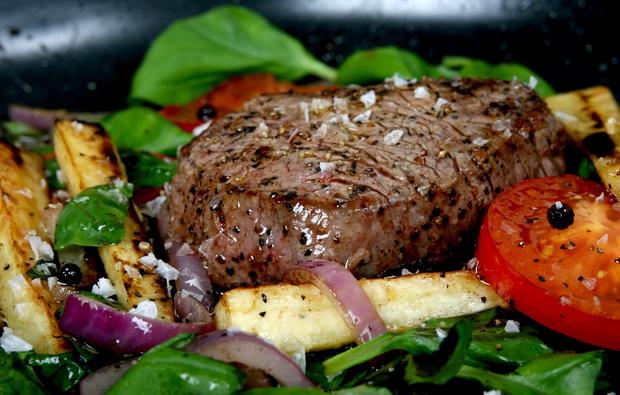What is cholesterol?
Cholesterol is a type of fat that circulates in your blood. Cholesterol comes from two sources:
Your body makes some cholesterol on its own, regardless of what you eat.
Cholesterol also comes from the foods you eat. Cholesterol is found only in animal products. Foods from plants do not contain cholesterol.
How does cholesterol travel in the blood?
Cholesterol can’t travel in the blood on its own. It’s carried by special proteins. Combinations of cholesterol and protein carriers are called “lipoproteins.” There are two types of lipoproteins:
Low-density lipoproteins (LDLs, or “bad” cholesterol)
High-density lipoproteins (HDLs, or “good” cholesterol)
Think of LDLs as delivery trucks and HDLs as garbage trucks. LDLs pick up cholesterol from the liver and deliver it to cells. HDLs remove excess cholesterol from the blood and take it to the liver. A person’s total cholesterol level is a combination of LDL and HDL cholesterol.
What’s so bad about cholesterol?
Your body produces more than enough cholesterol on its own to stay healthy. Most Americans eat far too much cholesterol and fat, which can raise blood cholesterol levels. High levels of cholesterol can lead to heart disease.
Excess LDL cholesterol in your blood gets deposited in arteries, the blood vessels that feed the heart and brain. These deposits can join with other substances to form plaque. Plaque is a thick, hard deposit in the blood vessel. The name for build-up of plaque in the arteries is atherosclerosis, or “hardening of the arteries.” Plaque can narrow the passageway inside the artery and pinch off the flow of blood to the heart muscle.
How can I get my cholesterol level checked?
Your health care provider can check your cholesterol level by taking a sample of blood. The blood sample will be sent to a lab for testing. The test will show your total cholesterol level.
How much cholesterol is too much?
A healthy cholesterol level depends on a variety of factors, including:
Your level of HDL cholesterol compared with your level of LDL cholesterol
Your total cholesterol
Your number of risk factors for heart disease
Your age and activity level
Your current health status
Be sure to discuss your test results with your health care provider.
High total cholesterol does not always indicate an increased risk for heart disease. If you have high total cholesterol and high HDL cholesterol, you may not have an increased risk. Women, in particular, have higher HDL levels than men. For example, a woman with high HDL levels can have a total cholesterol level of 240 or over without an increased risk.
Risk factors for heart disease
Diabetes
Smoking
High blood pressure
Poor blood cholesterol
Obesity (BMI>30)
Sedentary lifestyle
Age (men, age 45 and older; women, age 55 and older)
Family history of heart disease
How can I lower my cholesterol?
Here are few tips for lowering cholesterol:
Eat fewer fats and fried foods. Choose non-fat and low-fat versions of foods, if available.
When eating fats, select unsaturated fats. (Unsaturated fats are liquid at room temperature vegetable oils, for example. Avoid tropical oils, such as palm and coconut oil and any fat that is solid at room temperature.)
Choose fish and poultry more often than red meat.
Limit total amount of meat, fish, poultry, and low-fat cheeses to 7 ounces or less each day.
Exercise.
If you smoke, quit.
Lose extra weight.
Eat more soluble fiber. Good sources are fruits, beans, peas, and oats.
Limit egg yolks to no more than three per week. (Egg whites are fat-free.)
Where can I learn more?
National Heart, Lung, and Blood Institute
NHLBI Health Information Center
Attention: Web Site
P.O. Box 30105
Bethesda, MD 20824-0105
301.592.8573
240.629.3255 TTY
Fax: 301.592.8563
email: NHLBIinfo@nhlbi.nih.gov
For all correspondence, please indicate that your request results from your visit to the NHLBI website
© Copyright 1995-2012 The Cleveland Clinic Foundation. All rights reserved.
This information is provided by the Cleveland Clinic and is not intended to replace the medical advice of your doctor or health care provider. Please consult your health care provider for advice about a specific medical condition.


